-
 bitcoin
bitcoin $87959.907984 USD
1.34% -
 ethereum
ethereum $2920.497338 USD
3.04% -
 tether
tether $0.999775 USD
0.00% -
 xrp
xrp $2.237324 USD
8.12% -
 bnb
bnb $860.243768 USD
0.90% -
 solana
solana $138.089498 USD
5.43% -
 usd-coin
usd-coin $0.999807 USD
0.01% -
 tron
tron $0.272801 USD
-1.53% -
 dogecoin
dogecoin $0.150904 USD
2.96% -
 cardano
cardano $0.421635 USD
1.97% -
 hyperliquid
hyperliquid $32.152445 USD
2.23% -
 bitcoin-cash
bitcoin-cash $533.301069 USD
-1.94% -
 chainlink
chainlink $12.953417 USD
2.68% -
 unus-sed-leo
unus-sed-leo $9.535951 USD
0.73% -
 zcash
zcash $521.483386 USD
-2.87%
How does a Bitcoin mining machine produce coins?
Bitcoin mining involves verifying and adding new blocks to the blockchain through solving complex mathematical equations, with successful miners receiving block rewards in the form of new Bitcoin coins.
Jan 11, 2025 at 09:22 am
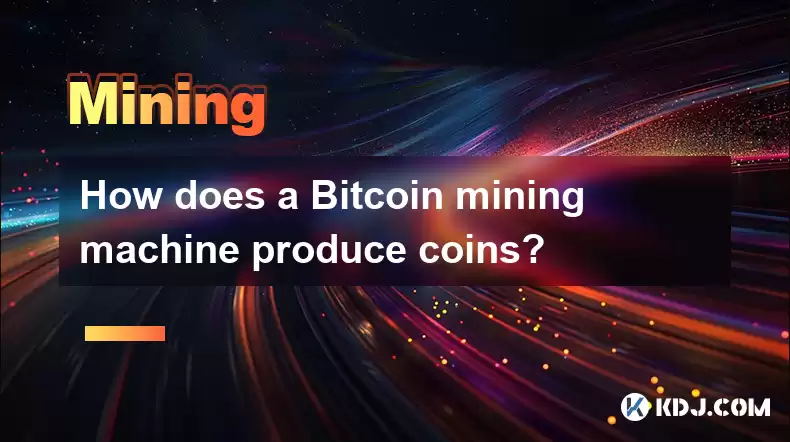
Unraveling the Intricacies of Bitcoin Mining: A Comprehensive Guide to Coin Production
Key Points:
- Understanding the Fundamentals of Bitcoin Mining
- Constructing a Mining Rig: Hardware Requirements and Configuration
- Electricity Consumption and the Cost-Efficiency of Mining
- Managing Heat Dissipation for Optimal Performance
- Joining Mining Pools: Collective Efforts for Increased Rewards
- Understanding the Halving Mechanism and Its Impact on Production
- Troubleshooting Common Mining Issues and Optimizing Performance
1. Understanding the Fundamentals of Bitcoin Mining
Bitcoin mining is the process of verifying and adding new blocks to the Bitcoin blockchain, the decentralized public ledger of Bitcoin transactions. Miners are responsible for solving complex mathematical equations using specialized hardware, known as mining machines. Successful verification of a block earns the miner a block reward, which is the primary source of new Bitcoin coins.
2. Constructing a Mining Rig: Hardware Requirements and Configuration
Building a mining rig requires careful selection and configuration of hardware components. The essential components include:
a. Mining Machine (ASIC): Application-specific integrated circuits (ASICs) are specialized chips designed specifically for Bitcoin mining. They offer unparalleled computational power for this purpose.
b. Power Supply Unit (PSU): A high-wattage PSU is necessary to power the energy-intensive mining machine. The power consumption varies depending on the mining machine model.
c. Cooling System: Mining machines generate significant heat during operation. Efficient cooling is crucial to maintain optimal performance and extend equipment life.
3. Electricity Consumption and the Cost-Efficiency of Mining
Mining consumes significant electricity, accounting for a major operational cost. Miners must consider their local electricity rates to determine the cost-effectiveness of mining. Factors influencing profitability include:
a. Electricity Costs: The cost of electricity per kilowatt-hour (kWh) varies by region and electricity provider.
b. Machine Efficiency: Different mining machines offer varying efficiency levels, affecting the amount of electricity consumed per unit of computational power.
c. Cryptocurrency Price: The price of Bitcoin directly influences mining profitability. When Bitcoin prices are high, mining may be more lucrative despite higher electricity costs.
4. Managing Heat Dissipation for Optimal Performance
Mining machines generate substantial heat during operation, which can impair performance and shorten equipment life. Proper heat dissipation is essential:
a. Cooling Fans: High-powered cooling fans provide direct airflow to the mining machine, dissipating heat.
b. Liquid Cooling Systems: Immersive cooling or water-cooled loops can effectively remove heat from the machine, enabling higher performance.
c. Room Ventilation: Adequate ventilation in the mining environment is crucial for heat removal. Open windows, fans, or air conditioning units can help maintain optimal operating temperatures.
5. Joining Mining Pools: Collective Efforts for Increased Rewards
Solo mining, where individual miners compete to verify blocks, can be time-consuming and less profitable. Joining a mining pool combines computational power with other miners, increasing the chances of finding a block.
a. Pool Fees: Mining pools charge a small fee for their services, typically a percentage of block rewards.
b. Pool Selection: Consider factors such as pool fees, pool stability, and minimum payout thresholds when selecting a mining pool.
6. Understanding the Halving Mechanism and Its Impact on Production
Approximately every four years, the number of new Bitcoin coins produced as block rewards is halved. Halving slows the rate of Bitcoin production and regulates the supply, contributing to its scarcity and potential value.
7. Troubleshooting Common Mining Issues and Optimizing Performance
Various factors can impact mining performance. Common issues include:
a. Hardware Malfunctions: Ensure all hardware components are properly installed and functioning correctly.
b. Overheating: Monitor temperatures and adjust cooling systems as needed.
c. Software Updates: Regularly update mining software to optimize performance and address bugs.
d. Network Connectivity: Stable internet connectivity is essential for successful mining.
FAQs:
Q: How much does it cost to mine one Bitcoin?A: The cost of mining one Bitcoin depends on several factors, including electricity consumption, machine efficiency, current Bitcoin price, and pool fees.
Q: Is Bitcoin mining profitable?A: Bitcoin mining profitability fluctuates over time based on electricity costs, cryptocurrency prices, and competition. It is advisable to carefully consider all factors before investing in mining equipment.
Q: How long does it take to mine one Bitcoin?A: The mining difficulty and the miner's computational power determine the time taken to mine one Bitcoin. Joining a mining pool can increase the chances of finding a block and earning rewards sooner.
Disclaimer:info@kdj.com
The information provided is not trading advice. kdj.com does not assume any responsibility for any investments made based on the information provided in this article. Cryptocurrencies are highly volatile and it is highly recommended that you invest with caution after thorough research!
If you believe that the content used on this website infringes your copyright, please contact us immediately (info@kdj.com) and we will delete it promptly.
- Trump's Northern Blast: How Canada Remarks Jolted WLFI Price and Shook Crypto Holders
- 2026-02-01 21:55:01
- LivLive Ignites Crypto Presale with Trillion-Dollar Ambitions: The Reality Layer Takes Center Stage
- 2026-02-01 21:50:02
- Buttcoin's Big Apple Buzz: Surging on Coinbase, Trending in the Crypto Wild West
- 2026-02-01 21:45:01
- Tokenization, Stablecoins, Remittances: The New York Minute for Global Finance
- 2026-02-01 19:20:01
- BlockDAG Poised for 100x Crypto Opportunity as Presale Enters Final Hours, Promising Massive Gains
- 2026-02-01 19:20:01
- Circle Charts Bold Course: Stablecoins to Reshape Global Finance by 2026
- 2026-02-01 19:25:01
Related knowledge

How to Earn Passive Income with DePIN Mining? (New Trend 2026)
Feb 01,2026 at 12:40pm
Understanding DePIN Mining Mechanics1. DePIN mining relies on real-world infrastructure participation rather than computational hashing. Users deploy ...

How to Mine Bitcoin on Mac (M1/M2/M3)? (Software Tutorial)
Feb 01,2026 at 07:19pm
Understanding Bitcoin Mining on Apple Silicon1. Bitcoin mining relies on solving cryptographic puzzles using computational power, and Apple’s M1, M2, ...
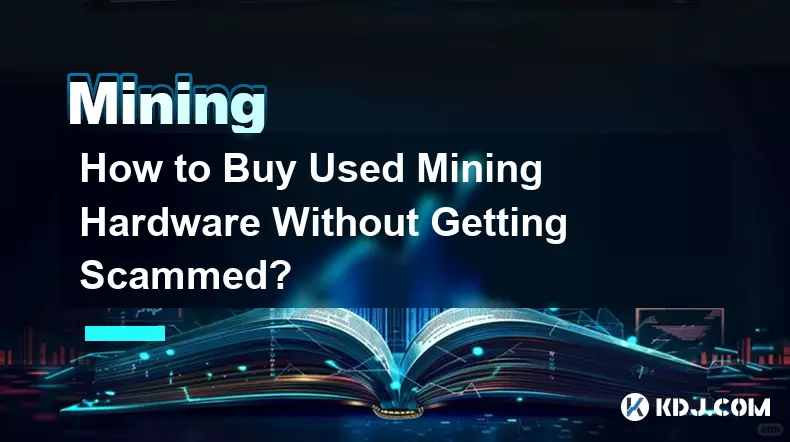
How to Buy Used Mining Hardware Without Getting Scammed?
Feb 01,2026 at 08:00pm
Research the Seller's Reputation Thoroughly1. Check archived listings and feedback on platforms like Bitcointalk forums, Mining Hardware subreddits, a...
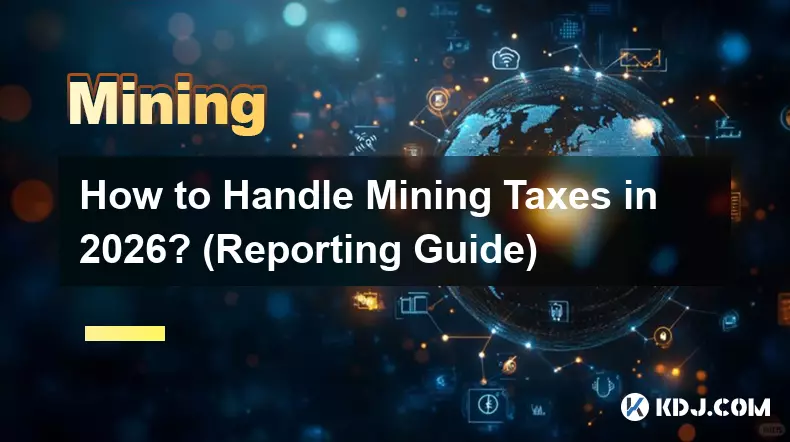
How to Handle Mining Taxes in 2026? (Reporting Guide)
Feb 01,2026 at 01:39am
Tax Classification of Mining Rewards1. Cryptocurrency mining rewards are treated as ordinary income at the fair market value on the date of receipt. 2...
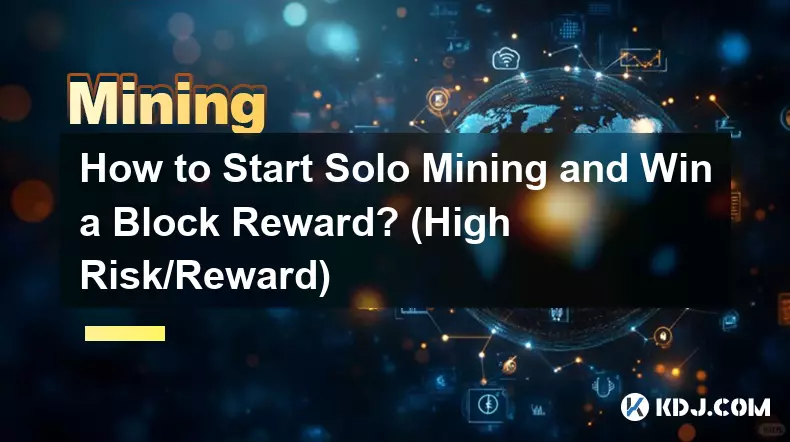
How to Start Solo Mining and Win a Block Reward? (High Risk/Reward)
Feb 01,2026 at 06:40am
Understanding Solo Mining Mechanics1. Solo mining means operating a full node and attempting to solve cryptographic puzzles independently without join...
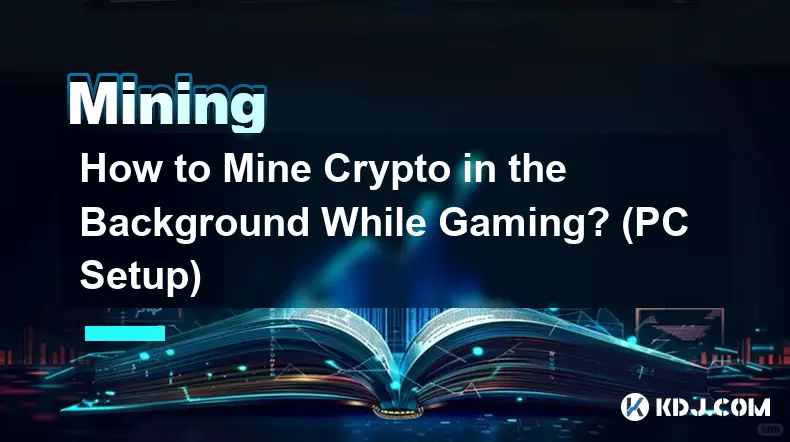
How to Mine Crypto in the Background While Gaming? (PC Setup)
Feb 01,2026 at 01:20pm
Optimizing GPU Utilization During Gaming Sessions1. Modern gaming GPUs often idle certain shader units or memory bandwidth during less demanding scene...

How to Earn Passive Income with DePIN Mining? (New Trend 2026)
Feb 01,2026 at 12:40pm
Understanding DePIN Mining Mechanics1. DePIN mining relies on real-world infrastructure participation rather than computational hashing. Users deploy ...

How to Mine Bitcoin on Mac (M1/M2/M3)? (Software Tutorial)
Feb 01,2026 at 07:19pm
Understanding Bitcoin Mining on Apple Silicon1. Bitcoin mining relies on solving cryptographic puzzles using computational power, and Apple’s M1, M2, ...

How to Buy Used Mining Hardware Without Getting Scammed?
Feb 01,2026 at 08:00pm
Research the Seller's Reputation Thoroughly1. Check archived listings and feedback on platforms like Bitcointalk forums, Mining Hardware subreddits, a...

How to Handle Mining Taxes in 2026? (Reporting Guide)
Feb 01,2026 at 01:39am
Tax Classification of Mining Rewards1. Cryptocurrency mining rewards are treated as ordinary income at the fair market value on the date of receipt. 2...

How to Start Solo Mining and Win a Block Reward? (High Risk/Reward)
Feb 01,2026 at 06:40am
Understanding Solo Mining Mechanics1. Solo mining means operating a full node and attempting to solve cryptographic puzzles independently without join...

How to Mine Crypto in the Background While Gaming? (PC Setup)
Feb 01,2026 at 01:20pm
Optimizing GPU Utilization During Gaming Sessions1. Modern gaming GPUs often idle certain shader units or memory bandwidth during less demanding scene...
See all articles
























![[Audio stories] Streamer Became a Billionaire Overnight After Buying One Junk Coin [Audio stories] Streamer Became a Billionaire Overnight After Buying One Junk Coin](/uploads/2026/02/01/cryptocurrencies-news/videos/origin_697eaa9a495ed_image_500_375.webp)

















































